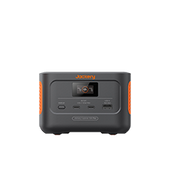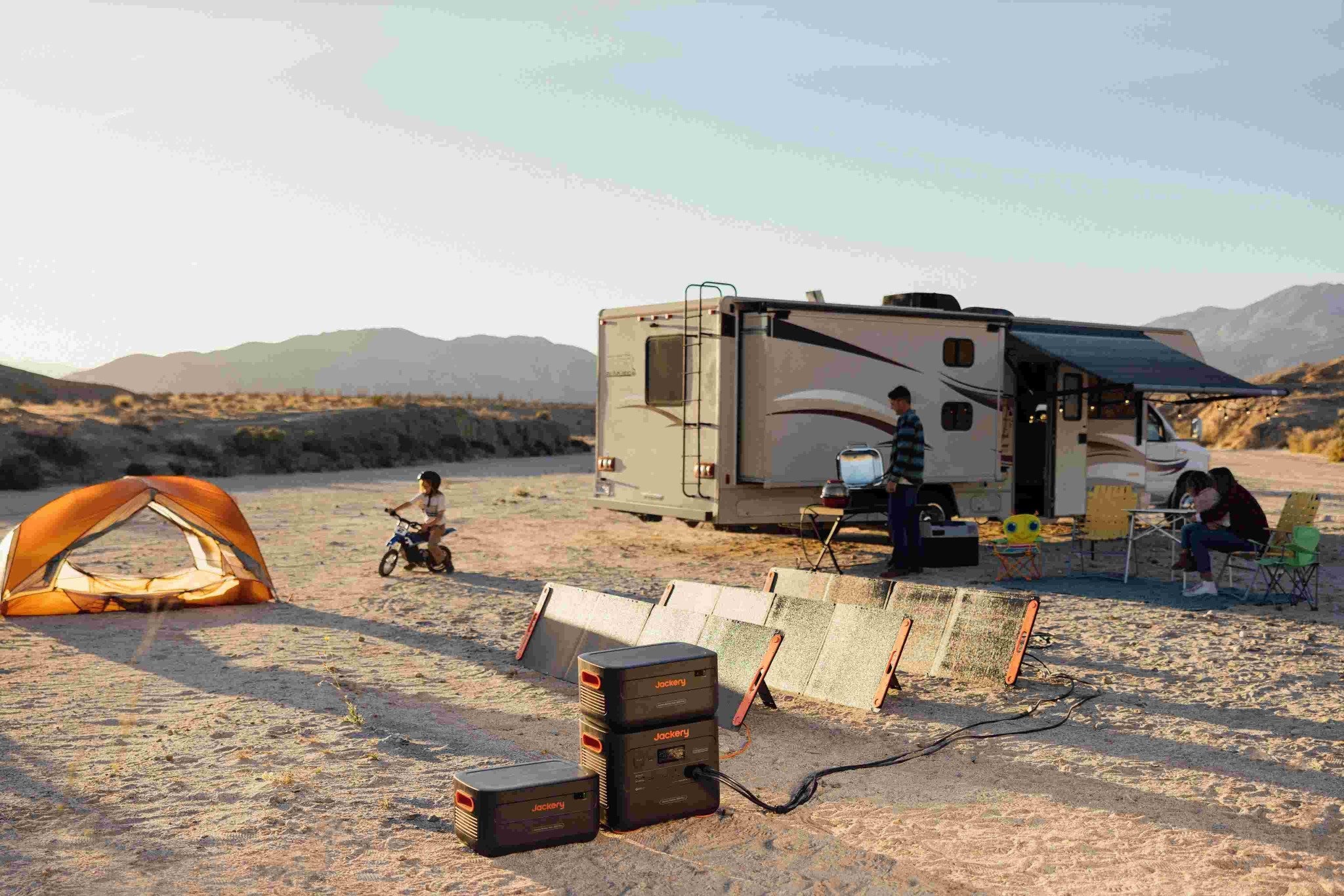Electricity is now an indispensable need for everyone in modern life. Almost all activities, from home to workplace, from entertainment to communication, rely on a stable and reliable power supply.
Therefore, a power cut in the UK or any other region has a significant impact. Power cuts not only cause disruptions to household and business operations, but may also lead to safety issues such as causing collisions and interrupted medical equipment, endangering patients’ safety.
So, how to deal with power cuts? Understanding how to take appropriate measures during power cuts is crucial. This includes preparing emergency backup small electric generators, developing emergency evacuation plans, maintaining contact with family and friends, using flashlights, etc. This article will explore more about power cuts and their solutions. Read on to learn more!
Reasons for Power Cuts
The reasons for power cuts can be mainly divided into two categories: planned and unplanned.
- Planned Power Cuts
In order to maintain equipment, upgrade transmission lines, or build some construction, the distribution network operator will temporarily suspend power supply to certain neighbourhoods, districts, and streets. This practice is called a planned outage.
The purpose of planned power cuts is to ensure the safety and reliability of the power system and to prevent potential future power failures or accidents through regular maintenance and upgrades.
Information about planned outages is provided on the distribution companies' websites. For example, you can check the Electricity Northwest power cut list for the northern regions of England from the "Electricity Northwest" website. Some outages may be notified by local operators via mobile messages.
You can contact your local Distribution Network Operator (DNO) by calling 105 from all parts of the UK and get information about power outages or create a fault record. You can also report southern electric power cuts using this number.
- Unplanned Power Cuts
The major reasons for unplanned outages are sudden weather conditions and unforeseen disasters. Weather activities consisting of heavy rain, snow, strong winds, or lightning can cause energy outages. Especially in winter, electricity corporations follow the weather situations and prepare. However, this is only a precaution for rapid response.
In addition to natural factors, road accidents that damage power lines or deliberate destructive behaviours can also cause power outages. It is common for power poles to fall accidentally, especially on intercity roads. Disasters such as earthquakes, floods, or forest fires can cause long-term outages.
Unlike planned power cuts, unplanned power outages last longer. Therefore, having at least a small electric generator in your home allows you to meet your urgent needs during the blackout.
9 Tips for Dealing with Power Cuts
It is crucial to take appropriate measures when facing power cuts. Here are 9 practical tips to help you better prepare for and respond to power outages:
- Prepare an Emergency Backup Power Source
Having a dependable backup electricity source is crucial during a power cut. For example, Jackery solar generators are superb options. They provide renewable power from the sun and are perfect for retaining crucial devices like telephones, lighting, and small home equipment.
Investing in a solar generator ensures you're organised for any power outage. Moreover, its solar panels and battery storage allow you to make personal efforts to combat climate change by reducing your carbon emissions. So, even in emergencies, using a portable solar generator in your home is both an eco-friendly and budget-friendly investment.
- Carry a Flashlight with You
Always keep a flashlight within reach and ready to use at home in case power outages happen at night. It helps you navigate in the dark, check your surroundings, and even signal in emergency situations. Ensure that the battery of the flashlight is sufficient, or choose a rechargeable flashlight.
Many people use their phone's flashlight. But remember, your phone's battery is important to keep you connected for longer in the event of an outage.
- Maintain Communication
Staying informed for the duration of a power cut is important. Ensure your smartphone is charged and prepare a reachable power bank. You can check for power cuts in your area on your utility's app or website.
The phone also allows you to reach your relatives or request help from local authorities in case of emergency. Therefore, during the outage, do not use your phone except for your urgent needs and communication, and do not do anything that will consume its battery.
- Close the Refrigerator Door
When the electricity goes out, keep your refrigerator door closed as much as possible. This enables maintaining the cold temperature inside, keeping meals fresh for longer.
A closed fridge can hold its coolness for as much as hours, lowering the chances of spoilage at some stage in a quick outage.
- Prepare Water and Food that Doesn’t Require Heating
Have a storage area for meals and water that doesn't need to be cooked or heated. Items like canned items, snacks, and bottled water are ideal throughout power outages.
These non-perishable meals ensure you have sustenance without the need for electricity to cook or put meals together.
- Turn off All Appliances
It is common for power lines to fluctuate during a power cut. Another risk is that when the power returns, your home power line may be overloaded. A sudden voltage drop or increase can cause sensitive electrical devices in your home to malfunction.
Therefore, turn off all electrical devices that are in the working state to prevent possible damage. With this simple precaution, you can rest assured without suffering financial losses during an outage. Moreover, remember to leave one light in the room to indicate if the power is recovered.
- Backup Important Files
Make regular backups on your computer. For example, enable short-term backup in your office program. In case of an unexpected outage, the files you are working on at that moment will be lost if they are not saved. Another risk is that voltage surges that will occur during the outage can damage the computer.
If the files are urgently needed at that time, buy a solar generator so that the power cuts do not affect your work.
- Pay Attention to Warmth and Safety
In winter, you may face heating problems during a power outage. Use blankets, warm clothing, and non-electric heating devices such as hot-water bags to keep warm. Meanwhile, ensure that candles in the home are kept away from flammable materials and use portable heaters outdoors.
Having a portable solar generator in your home is an effective solution to meet basic needs such as powering an electric heater.
- Medical and Emergency Needs
For people with special medical needs, such as patients who need to use electrically powered medical equipment, consecutive days of power cuts may be life-threatening.
Therefore, families should prepare a small electric generator or communicate with healthcare providers to develop emergency plans. At the same time, ensure that the first aid kit is complete, including necessary medications and first-aid supplies.
How to Choose an Emergency Backup Power Source
When deciding on an emergency backup power source, numerous important factors need to be considered to make sure it meets your needs during outages. Here are five key factors to assess:
- Power Type
When choosing an emergency backup power source, there are fuel generators and solar generators to choose from. Gasoline generators are suitable for long-term power supply needs but require regular maintenance and have high noise levels. Diesel generators are usually more durable and run longer than gasoline generators, but they also require maintenance and are more polluting.
On the contrary, solar generators are environmentally friendly and do not require fuel. The power station it is equipped with can store energy generated during the day for use at night, making it very suitable for power outages.
- Electricity Demand
Assess your energy demand by checking the crucial gadgets you need to energy all through a power cut. Do you most need to keep small electronics like telephones and laptops running, or will you require power for larger appliances, which include refrigerators and clinical gadgets?
Your power demand will influence the capacity and type of the backup generator. A small electric-powered generator might meet minimal power needs, while a larger solar generator may be required for more substantial demands.
- Capacity and Running Time
Capacity influences the endurance that the backup power source can keep and supply. Add up the total power of the equipment and appliances you need to supply during a power cut to get the approximate capacity of the generator.
In addition, consideration should also be given to whether the generator can be expanded to support your operation for a longer period of time. Scalable battery capacity can reduce the need to purchase new products.
- Safety and Maintenance
Safety is an important consideration when choosing a backup power source. Consider whether the emergency power supply has safety functions such as overload, short circuit, and over-temperature protection, whether the materials used are fire-resistant, and whether the structure is stable.
In addition, conducting regular safety checks and understanding the maintenance requirements of the power supply is also important. For example, a fuel generator needs to change the oil, clean the air filter, etc. Solar generators require regular cleaning of the solar panels.
- Silence and Portability
For home or office environments, choosing a silent generator can reduce noise interference. Portability is also an important factor, especially when used outdoors or in multiple locations.
Unlike noisy and bulky fossil fuel-powered generators, solar generators are quiet and lightweight. It is easy to carry and install. In this way, you can run the solar generator whenever you need it at home or outdoors.

Jackery Solar Generator Power Emergency Situations
When looking for a reliable, efficient, and environmentally friendly emergency backup power source, Jackery solar generators are a reliable choice.
For home emergency backup, Jackery solar generators have excellent stability and focus on user experience and portability design, allowing you to easily cope with power shortages anytime, anywhere. Here are our two outstanding products:
- Jackery Solar Generator 1000 v2
The Jackery Solar Generator 1000 v2 is an excellent choice for short-term power outages. Its portability and efficiency make it ideal for powering essential devices during a power cut. With up to 25% solar conversion rate, it charges in just 1 hour of Emergency Super Charging. Other features include:
- It has 1070Wh power capacity, 1500W output, and a GaN bi-directional inverter.
- Its Jackery Explorer 1000 v2 Portable Power Station weighs only 23.8 lbs, which is 18% smaller than previous products.
- Featuring LFP batteries and upgraded ChargeShield 2.0 technology, providing multiple charging modes and 62 safety mechanisms.
- A response time of less than 20 ms ensures that your device continues to operate during power outages or voltage fluctuations.
- Keep the noise level below 22 dB.
- Easily monitor and manage energy through intelligent applications.
- Jackery Solar Generator 2000 Plus
The Jackery Solar Generator 2000 Plus offers increased capacity and versatility for those requiring more power during a power cut. This model is perfect for longer outages or higher energy demands.
It can operate all home appliances, including heaters, ovens, and refrigerators, for a certain period during power cuts. By adding 5 battery packs, it can be expanded from 2 kWh to 12 kWh. Other features include:
- Advanced IBC technology allows for fast charging using 6 Jackery SolarSaga 200W solar panels within 2 hours.
- High-quality LiFePO4 batteries are durable and long-lasting, with a lifespan of up to 10 years, even if used once a day.
- Can supply power to heavy equipment up to 3000W.
- The noise level during charging is below 30 dB.
- Easily control electricity usage using the Jackery app.
Conclusion
At Jackery, we understand the challenges of power cuts and offer reliable, sustainable power solutions. Our solar panels and battery storage solutions assist you during power cuts. It is designed to perform at the best overall performance in emergency conditions.
Jackery solar generators not only help you conquer electricity outages without difficulty but are also suitable for day-by-day domestic and outdoor use. Visit our website to make a preparation for accidental power cuts!







































































































